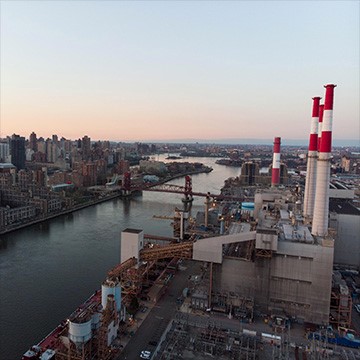 In December, NYC became the largest city in the country to agree to phase out the use of fossil fuels in all new buildings. The New York City Council has passed a bill prohibiting natural gas hookups in new buildings, beginning next year.
In December, NYC became the largest city in the country to agree to phase out the use of fossil fuels in all new buildings. The New York City Council has passed a bill prohibiting natural gas hookups in new buildings, beginning next year.
NYC’s largest source of carbon emissions is from buildings- at 27%, more than double the amount that building emissions account for in other places (13% in the US as a whole), more than transportation, waste or any other category.
Appliances that run on gas — stoves, furnaces, boilers, and water heaters — also come at another cost. When natural gas combusts indoors, a mix of particulate matter, nitrogen and sulfur oxides, and volatile organic compounds is released — air pollutants that have harmful effects on respiratory and cardiovascular health. Gas-fueled appliances are also frequent emitters of methane, a more impactful greenhouse gas than carbon dioxide.
With the new bill, New Yorkers can expect to see some changes by the end of 2023, when developers of new buildings under seven stories won’t be allowed to put in natural gas-powered stoves, boilers, or water heaters. Instead, these buildings will use electricity, relying on a mix of technologies like heat pumps and induction stoves to replace gas and oil.
Builders of larger structures like skyscrapers will have until 2027 before they have to scrap gas. And since the bill applies solely to the roughly 2,000 new buildings that go up in the city each year, it won’t address the gas and other fossil fuels burned in the city’s 1 million existing structures. (It’s politically harder and more expensive to renovate buildings years later than it is to build them with electric power from the start.)
Still, the ban is necessary for transitioning off of fossil fuels: Without it, the city’s building sector would be a main source of climate pollution for decades to come. And the bill’s advocates see it as a potential turning point in one of the most fraught national battles with the fossil fuel industry over the fate of the nation’s 70 million gas-powered buildings. “New York City is stepping up on one crucial aspect of fighting the climate crisis,” Pete Sikora, campaigns director for New York Communities for Change, a group that advocated for the bill. “This is the country’s global city sending a signal to the nation and the world to get off of fossil fuels.”
You can read more about this on the Vox.com website here.

